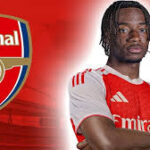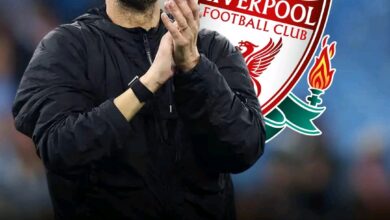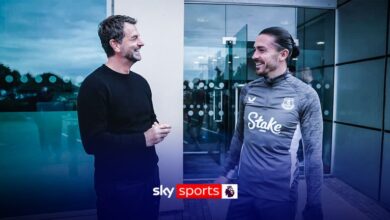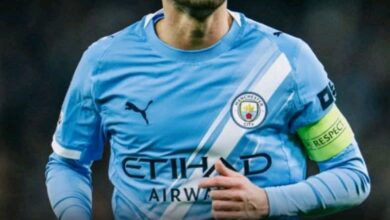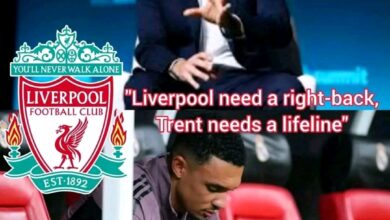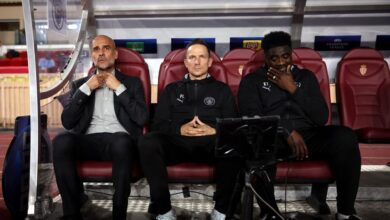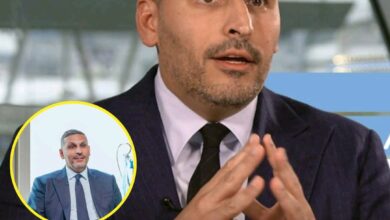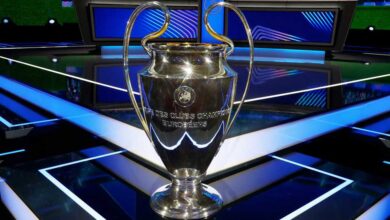Arsenal’s New Era: Analyzing Noni Madueke’s Dedication and Arteta’s Pre-Season Vision
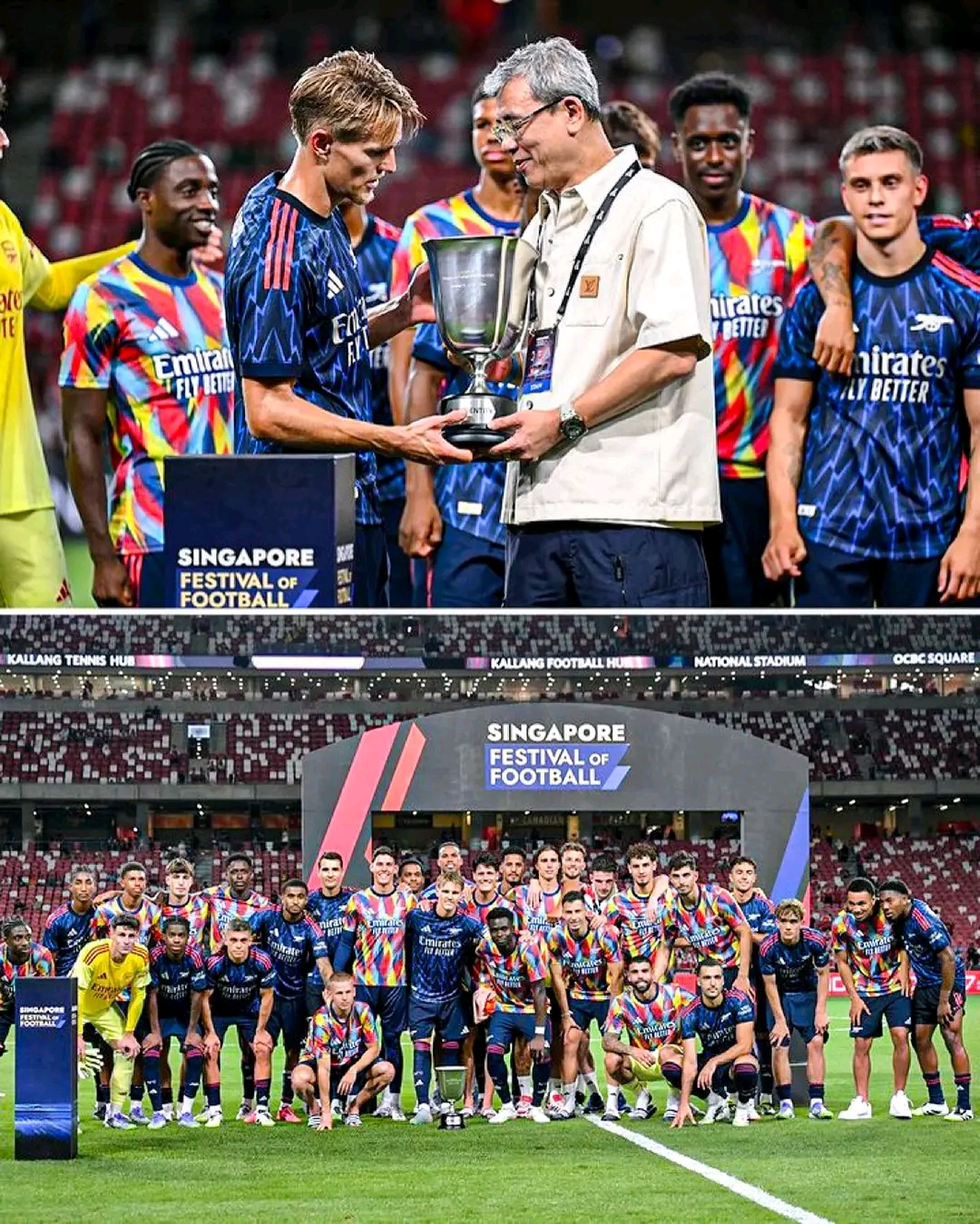
Arsenal Football Club’s pre-season campaign has taken an intriguing turn, not just through their performances on the pitch, but through the behind-the-scenes dedication of their newest acquisition. The Gunners’ recent 1-0 victory over AC Milan in Singapore served as more than just another friendly fixture; it provided a glimpse into Mikel Arteta’s evolving tactical philosophy and the professional standards he demands from his squad.
The National Stadium in Singapore witnessed Arsenal’s continued pre-season momentum as they secured a narrow but convincing victory over Italian giants AC Milan. This wasn’t merely about the result – though Bukayo Saka’s second-half winner certainly pleased the traveling Arsenal faithful – but rather about the statement of intent from Arteta’s carefully constructed lineup and tactical approach.
Arteta’s decision to field a strong starting XI, featuring new signing Christian Norgaard alongside established stars like Declan Rice, William Saliba, and Gabriel Martinelli, demonstrated his commitment to treating pre-season fixtures with the seriousness they deserve. This approach reflects a manager who understands that building winning habits and maintaining high standards begins long before the competitive season kicks off.
The first half performance showcased Arsenal’s attacking intent, with the team creating numerous opportunities against Milan’s defense. Ethan Nwaneri’s powerful drive, which required a smart save from Pietro Terracciano, highlighted the depth of talent emerging through Arsenal’s academy system. This integration of youth with experience has become a hallmark of Arteta’s management style, creating a dynamic where established players mentor emerging talents while maintaining competitive intensity.
The Spanish manager’s half-time substitutions revealed his meticulous approach to squad management and tactical flexibility. Bringing on players like Kepa Arrizabalaga, Martin Zubimendi, and Martin Odegaard wasn’t just about giving game time to key players; it was about maintaining the tempo and quality that would eventually break down Milan’s resistance.
This systematic approach to substitutions demonstrates Arteta’s evolution as a tactician. Rather than making wholesale changes that might disrupt team flow, he introduced fresh legs while maintaining the tactical structure that had dominated the first period. The continuity in performance levels following these changes speaks volumes about the depth of understanding throughout the squad regarding their manager’s expectations.
The breakthrough moment arrived in the 57th minute through a move that perfectly encapsulated Arsenal’s improved crossing and finishing under Arteta’s guidance. Jakub Kiwior’s precise delivery from the left flank found Saka in perfect position to steer the ball into the corner. The initial concerns about offside from Milan’s defenders only served to highlight the fine margins that separate good attacking play from great attacking play – and Arsenal’s ability to operate within those margins.
Arteta’s willingness to introduce 15-year-old Max Dowman in the 66th minute speaks to a broader philosophy about youth development at Arsenal. This isn’t tokenism or mere squad rotation; it represents a genuine belief in the club’s academy system and the importance of exposing young talent to high-level competition early in their development.
The fact that Kai Havertz lasted until the 79th minute before being replaced by Reiss Nelson demonstrates another aspect of Arteta’s player management. The German forward’s extended appearance suggests he’s being viewed as a crucial component of the upcoming season’s plans, with his fitness and match sharpness being prioritized during this crucial pre-season period.
Arsenal’s defensive performance against Milan provided perhaps the most encouraging aspect of the evening. The Gunners were rarely troubled throughout the match, with Milan managing just one shot on target compared to Arsenal’s nine attempts. This defensive solidity, built around the partnership of William Saliba and Gabriel, with Declan Rice providing crucial protection in front of the back line, suggests that Arteta has successfully addressed one of the key weaknesses that had previously hindered the club’s progress.
The clean sheet performance, while coming in a friendly, demonstrated the defensive principles that Arteta has instilled throughout his tenure. The coordination between defensive lines, the pressing triggers, and the collective understanding of when to step up or drop back all pointed to a team that has internalized their manager’s tactical instructions to a sophisticated degree.
Although Milan won the subsequent penalty shootout, this shouldn’t detract from the quality of Arsenal’s 90-minute performance. Penalty shootouts in friendly matches often serve different purposes – allowing players to practice high-pressure situations while providing entertainment for supporters – and the result has little bearing on the tactical and physical preparation that represents the true value of these fixtures.
While the on-field action in Singapore captured immediate attention, perhaps the most telling insight into Arsenal’s evolving culture came from someone who wasn’t even present at the National Stadium. Noni Madueke, Arsenal’s £52 million acquisition from Chelsea, provided a masterclass in professional dedication despite being granted an extended break following his involvement in Chelsea’s Club World Cup campaign.
The 23-year-old winger’s absence from the Singapore fixture was entirely justified and professionally managed. Having played for Chelsea right up until the Club World Cup final, Madueke had earned the right to additional rest before joining his new teammates. However, his response to this downtime reveals the mentality that likely attracted Arteta and Arsenal’s recruitment team to pursue him so aggressively.
Rather than using his break as an opportunity for complete relaxation, Madueke chose to maintain his physical conditioning through intensive gym work. His Instagram story, posted during Arsenal’s match against Milan, showed him training alongside four others, with the simple caption of four flexed bicep emojis. This might seem like a minor social media post, but it represents something far more significant about the player’s character and professional standards.
Madueke’s gym session during is teammates’ match reveals several crucial aspects of elite athletic mentality. First, it demonstrates his understanding that fitness and conditioning represent ongoing commitments rather than seasonal requirements. Professional footballers at the highest level recognize that physical preparation never truly stops, even during designated rest periods.
Second, his decision to document and share this training session suggests a player who takes pride in his work ethic and wants to communicate his commitment to his new club and supporters. This isn’t about social media validation; it’s about establishing his credentials as someone who takes his professional responsibilities seriously.
Third, the timing of the post – during Arsenal’s match – shows that Madueke remains connected to his new team even when physically absent. He’s demonstrating that his commitment to Arsenal extends beyond contractual obligations to genuine investment in the club’s success
Mikel Arteta will undoubtedly appreciate Madueke’s approach to his extended break. The Arsenal manager has consistently emphasized the importance of professional standards, both on and off the pitch, throughout his tenure at the Emirates Stadium. Players who demonstrate initiative and self-motivation in maintaining their condition align perfectly with the culture Arteta has worked to establish.
This cultural shift at Arsenal has been one of Arteta’s most significant achievements. Moving away from the inconsistent application of professional standards that characterized some previous eras, the Spanish manager has created an environment where excellence is expected rather than exceptional. Madueke’s gym work during his break suggests he already understands and embraces these expectations.
The integration of new signings into established team cultures represents one of football’s most delicate challenges. Players must adapt not only to new tactical systems and training methods but also to unwritten rules about behavior, commitment, and team dynamics. Madueke’s proactive approach to maintaining his fitness suggests this integration process will be smoother than might otherwise be expected.
As Arsenal continue their pre-season preparations, the combination of strong on-field performances and exemplary off-field professionalism provides genuine optimism for the campaign ahead. The tactical sophistication demonstrated against Milan, combined with the depth of talent available to Arteta, suggests a team capable of competing at the highest levels of domestic and European competition.
Madueke’s eventual integration into this system will be fascinating to observe. His pace, directness, and ability to create from wide positions should provide Arteta with additional tactical flexibility, particularly in breaking down stubborn defensive setups. The fact that he’s already demonstrating the kind of professional approach that Arteta values so highly suggests his adaptation period may be shorter than typically expected for high-profile signings.
The broader implications of this pre-season period extend beyond individual performances or signings. Arsenal appear to have reached a level of institutional maturity where professional standards are maintained consistently across all aspects of the club’s operations. From Arteta’s tactical preparation to Madueke’s individual conditioning work, every element points to a club operating with the kind of systematic excellence required for sustained success.
The juxtaposition of Arsenal’s commanding performance in Singapore with Madueke’s dedicated gym work in his absence perfectly encapsulates the professional standards that now define the club. Under Arteta’s guidance, Arsenal have evolved from a team with undeniable talent but inconsistent application to one where excellence has become systematized and expected.
Madueke’s approach to his extended break – choosing intensive training over complete relaxation – demonstrates that Arsenal’s recruitment strategy extends beyond identifying talented players to finding individuals whose mentality aligns with the club’s evolving culture. This attention to character and professionalism, combined with technical ability, represents a more holistic approach to squad building that should serve the club well in both immediate and long-term contexts.
As the new season approaches, Arsenal supporters have every reason for optimism. The tactical sophistication displayed against Milan, the depth of talent throughout the squad, and the professional standards exemplified by players like Madueke all point to a club operating at the highest levels of modern football. Arteta’s vision for Arsenal appears to be reaching fruition, with every aspect of the club’s operations aligned toward sustained success.
The true test will come when competitive action begins, but the foundations established during this pre-season period – both on and off the pitch – suggest Arsenal are better prepared than ever to meet the challenges ahead. In Madueke, they appear to have found not just a talented winger, but a player whose approach to professionalism perfectly embodies the standards that Arteta has worked so hard to establish at the Emirates Stadium.



